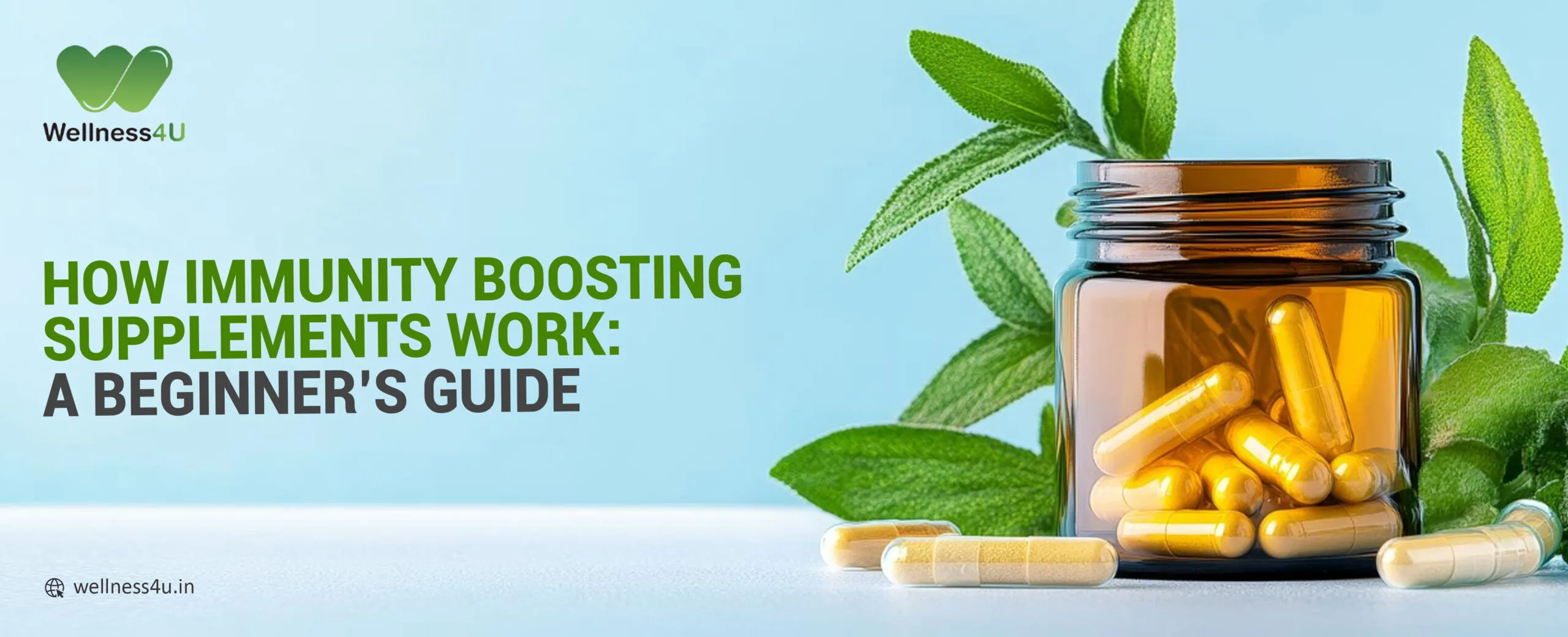When someone says you should boost your immunity, it sounds simple enough, right? Just take some vitamins, maybe drink more orange juice, and you’re good to go. But then you walk into a pharmacy or open a supplement website, and well, it gets overwhelming. Capsules, powders, tinctures, names you can’t pronounce, and claims that sound too good to be true. Why should you take immunity-boosting supplements? Let’s talk about the supplements from Wellness4U.
What Are Immunity-Boosting Supplements?
In the simplest terms, these are vitamins, minerals, or herbs that support the immune system, the complex defense network in your body that fights off viruses, bacteria, and other intruders. They don’t make you invincible. They’re not magic pills. But they can help fill in nutritional gaps, especially if your diet isn’t always perfect.
But here’s the tricky part: not all supplements are created equal, and your body doesn’t need everything that’s marketed to you.
The Core Essentials
Let’s look at the handful of nutrients that have some solid science behind them:
- Vitamin C
Probably the most famous of the bunch. Vitamin C is an antioxidant and helps the body repair tissues and fight infection, and immune system support. It’s found in citrus fruits, bell peppers, and broccoli, but if you’re not getting enough from food, a supplement might help.
Just don’t overdo it. More isn’t always better. High doses can upset your stomach, and no, it won’t prevent the common cold. But some studies suggest it might reduce the duration of symptoms slightly. So maybe it’s worth it for those sniffly days. - Vitamin D
This one’s less about diet and more about sunlight. Vitamin D plays a key role in regulating the immune response, and deficiency is surprisingly common, especially if you spend a lot of time indoors or live in a cloudy region.
It’s been studied for its role in reducing respiratory infections, and while the results vary, low vitamin D levels are linked to weaker immune function. Many people take it daily, especially in winter. - Zinc
Zinc helps immune cells function and communicate. It’s found in meat, shellfish, beans, and nuts. Like vitamin C, it might help reduce the length of colds if taken early.
But here’s a personal note: I once took a zinc lozenge on an empty stomach and deeply regretted it. Nausea for hours. So just… take it with food. - Probiotics
These are the “good” bacteria that live in your gut. A huge portion of your immune system is tied to your digestive tract, which is something most people don’t realize.
Probiotics can help balance gut bacteria, which in turn supports immune function. They’re found in yogurt, kefir, and fermented foods, or you can take them in capsule form. The tricky part? There are dozens of strains, and not all do the same thing. It’s okay to experiment a little and see what feels right. - Elderberry, Echinacea & Others
These are herbal supplements often taken at the first sign of a cold. There’s a mix of anecdotal support and small studies behind them. Some people swear by them, others don’t notice much difference.
I’ve had elderberry syrup during the winter and felt like it helped, but maybe it was the placebo effect. Still, if it makes you feel like you’re doing something proactive, that’s worth something too.
How to Choose a Supplement Without Losing Your Mind
Here’s the thing: labels can be misleading. “Immune health supplements” is a vague term, and flashy packaging doesn’t mean a product is effective.
Some quick tips:
- Look for third-party testing. Certifications like NSF, USP, or Consumer Lab mean the product has been independently tested for quality.
- Avoid mega-doses unless prescribed. More isn’t better, it can sometimes be harmful.
- Stick to known brands at first. Yes, they might be a little pricier, but they’re more likely to have quality control.
Also, don’t fall for trends that have no backing, like a mystery fruit extract claiming to “detox” your immune system. The body doesn’t work that way.
Do You Need Supplements?
Not necessarily. If you eat a balanced diet, sleep well, manage stress, and exercise regularly, your immune system is probably doing just fine on its own.
But let’s be real, for many of us, life doesn’t always allow for perfect habits. You skip vegetables for a few days, sleep erratically, or go through a stressful period, and suddenly, your immune system feels like it’s running on low battery. That’s where vitamin supplements can offer a bit of support, not as a fix-all, but as a backup.
Final Thoughts
There’s no one-size-fits-all formula when it comes to health. What works for your friend may do nothing for you. And sometimes, it’s less about what you take and more about what you consistently do. Hydration, rest, real food are boring, I know, but they matter.
If you’re new to all this, start small. Maybe try one thing, vitamin D in winter, or a probiotic if your gut feels off. See how you feel. Give your body time to respond. And if something doesn’t sit right with you? That’s okay. You can always adjust. Choose the wellnes4u team to get the best nutrition supplements and immunity boosting supplements, and keep your health safe and happy.





